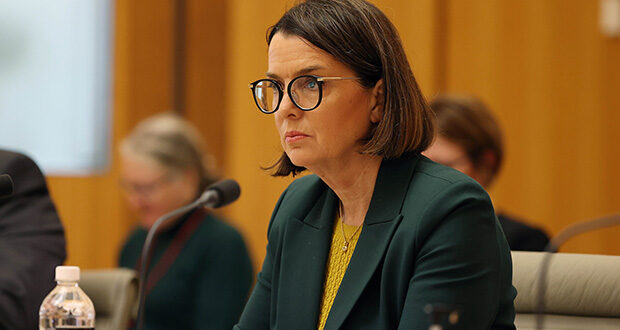Australia's aged care minister has defended her unwavering commitment to the sector following criticism from the Opposition for exacerbating pressures on aged care providers.
Shadow Minister for Health and Aged Care Anne Ruston said Labor's 'rushed' decisions on staffing requirements amid a national shortage had led to the closure of at least 17 aged care facilities.
"They cannot deliver on their promises," Ms Ruston said, "and aged care homes are now closing as a result of their ill-considered decision."
Since last year, the aged care sector has faced staffing and financial challenges due to reforms introduced by Labor, including 24/7 registered nurses and minimum care standards.
Federal data estimated that 23 residential facilities had shut their doors since September 2022, including 17 between September and February last year.
The sector is also under significant financial pressure, with 63 per cent of facilities operating at a loss.
Aged care advisory firm StewartBrown estimated that up to 50 residential care services could be closing their doors soon because 'they can no longer afford it.'
Aged Care Minister Anika Wells said the government had implemented various measures since last year to identify, monitor, and respond to providers at risk of closure.
In its recent budget, Labor earmarked $98.7m over the next two years for providers to improve their capability and financial risk management.
Overall, the government raised its investment in residential aged care from $16.4bn in 2022-23 to $20.4bn in 2023-24.
"We're confident there will be a positive increase in providers' finances when the next quarterly results come through," Ms Wells told Aged Care Insite.
"The Albanese government will continue to ensure residents are treated with the dignity older Australians deserve."
Last April, aged care provider Wesley Mission announced it would close its remaining three facilities after facing difficulties attracting enough staff to meet the new standards.
Brightwater Care Group joined Wesley Mission shortly after, stating financial and staffing pressure led them to shut three of its smallest facilities.
Especially rural facilities reported difficulties in attracting staff to meet the round-the-clock nursing mandate, after which Labor eased the rules by the July 2023 deadline.
Ms Wells said the implementation of 24/7 registered nurses remained a priority, with flexibility granted to rural and remote areas.
"The Aged Care Quality and Safety Commission is committed to working collaboratively with providers, focusing on effective care arrangements and regulatory compliance," she said.
Ms Wells emphasised the department offered other helplines for providers facing pressure, such as transparent guidelines and information on providers' responsibilities under the Aged Care Act.
Residents and their families were also receiving vital support through the involvement of representatives from the Older Persons Advocacy Network (OPAN), Ms Wells said.
"The department assists providers in establishing effective channels for regular updates to residents, their relatives, and representatives."
Ms Wells pointed out that 'more beds were opening than closing' in aged care.
"More beds will ensure that older Australians have access to residential aged care when they need it," she said.
"In just under four years, we've seen a significant rise in operational residential care places, with an increase of over 6,500 spots since July 2019.
"And an additional 47 services have opened, 11 in regional parts of Australia since July 2021."
But Ms Ruston said the federal government continued to overlook the main issue in aged care – its workforce.
"For all their rhetoric on prioritising health and aged care leading into the election, the federal government continues to ignore the biggest issue facing both systems," she said.
"By refusing to develop a strategy to address this urgent issue, our health and aged care systems remain under severe pressure.
"And Labor's promises will have delivered only headlines and no practical outcomes."
Earlier this month, Immigration Minister Andrew Giles announced a new Aged Care Industry Labour Agreement for providers to fast-track sponsorship of overseas direct care workers.
The visa is to streamline the hiring process and supply the sector with more workers from outside Australia.
Employers will no longer need to negotiate company-specific labour agreements for each aged care provider.
Additionally, providers will receive a federal investment of $11.3bn over four years to deliver a 15 per cent wage increase for aged care workers.
Do you have an idea for a story?Email [email protected]
 Aged Care Insite Australia's number one aged care news source
Aged Care Insite Australia's number one aged care news source

